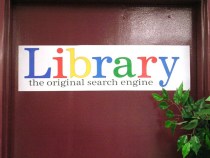
As an author and former academic, I use Google Books almost every day. It’s become the primary reason I even bother exploring non-fiction books online, rather than looking up an article on the same subject. Today, a U.S circuit judge declared that Google provides enormous benefit to society and authors, and denied the Author’s Guild’s copyright suit to block the massive book-scanning project [PDF]
Judge Chin gets it right & authors sld be happy. Google Books won't hurt you, & fair use is author's best friend. scribd.com/doc/184162035/…
—
Steven Levy (@StevenLevy) November 14, 2013
“Google Books provides significant public benefits,” wrote Judge Denny Chin, who argued that Google’s strategy of letting users preview select pages preserves copyright, while giving the public the incredibly important asset of searchable books.
Google has scanned over 20 million books. For those with current copyright claims, Google randomly obscures the pages from full viewing, but keeps all the words searchable (see image below. “Privacy” is highlighted because I searched for it in this particular book).
Google’s mass book scanning project has been a rallying cry for author unions and publishers to attack the search giant’s commercialization of their copyrighted works. But, just like how a news story can quote excerpts of a book and schools can hand out a limited number of pages, Chin ruled that Google’s preview function respected the legal parameters of “fair use”. She also noted that Google doesn’t actually monetize the project.
As an author I found the Judge’s analysis spot on. I’ve been researching the history of privacy for the last few months. I discovered a rich corpus of privacy literature in the seemingly irrelevant subject of renaissance architecture, in part because Google searches for “privacy” yielded books I never would have known about.
“It has given scholars the ability, for the first time, to conduct full-text searches of tens of millions of books,” explained Chin. Most importantly, I still rent or buy some of the books. Many of the architectural drawings are obscured in Google’s preview, so I’ve ordered them from my local library.
Moreover, Google Books has vastly accelerated my research, since I can now search for keywords, rather than having to painstakingly shift for “privacy” and “individualism” in obscure historical literature.
Even better, I’ve been able to trace the historical rise of the concept of “privacy” through Google’s n-gram viewer, which shows the number of occurrences of keywords throughout the centuries.
“It preserves books, in particular out-of-print and old books that have been forgotten in the bowels of libraries, and it gives them new life,” Chin observed.
The Internet has given us the expectation of immediately accessible, searchable content. As a high school debater in the late 90s, I used to spend hours in the library digging through books. Almost immediately when the Internet gave us the power to search content, I ditched my library habit for Google searches in the comfort of my PJs at home. It has saved me untold hours.
Because books never quite adapted to the Internet, my use of them in research dropped off a cliff. On a weekly basis, I just completely ignore books that opt out of Google preview because I have no idea what value they may be to me. Instead, I look for a book summary or an academic article on the same subject.
Without Google, I don’t see how the book can maintain its mindshare in the Internet age. Publishers should be thanking Google for making them relevant again. As an author who wants to write high quality material and sell books, I hope Google scans my works.
[Image Credit Flickr User Enokson]
Read more : Judge Permits Google To Continue To Make Books Relevant Online

0 Responses
Stay in touch with the conversation, subscribe to the RSS feed for comments on this post.